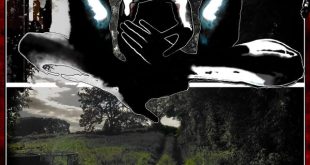When singer/songwriter Jesse Winchester left us this April, the accolades came pouring in from his friends and peers. Bob Dylan had already claimed, “You can’t talk about the best songwriters and not include him.” Joan Baez thanked Winchester for his music, and Elvis Costello said, “The word that comes to mind is ‘grace.’” Jimmy Buffett wrote, “In my way of thinking, Jesse may no longer reside in the world of matter, but his energy sure as hell does. It is timeless and eternal and will be with us always from Montreal to Memphis, to those red skies off toward New Orleans.” Add comedians Jerry Seinfeld and Albert Brooks to the list of fans who tweeted their sadness over the news.
 Of course, Winchester had earned high praise for decades. In April 1977, for example, Rolling Stone dubbed him “the Greatest Voice of the Decade.” Among his honors, in 2007 he earned a Lifetime Achievement Award from the American Society of Composers, Authors and Publishers. That award resulted, in part, from Winchester’s hits for Nicolette Larson (“Rhumba Girl”), the Weather Girls (“Well-a-Wiggy”), Michael Martin Murphey (“I’m Gonna Miss You Girl”), and his own hits, 1970’s “Yankee Lady” and 1981’s “Say What.”
Of course, Winchester had earned high praise for decades. In April 1977, for example, Rolling Stone dubbed him “the Greatest Voice of the Decade.” Among his honors, in 2007 he earned a Lifetime Achievement Award from the American Society of Composers, Authors and Publishers. That award resulted, in part, from Winchester’s hits for Nicolette Larson (“Rhumba Girl”), the Weather Girls (“Well-a-Wiggy”), Michael Martin Murphey (“I’m Gonna Miss You Girl”), and his own hits, 1970’s “Yankee Lady” and 1981’s “Say What.”
The range of his compositions is shown by the folks who chose to cover his songs, including Jerry Jeff Walker, George Strait, Patti Page, as well as Costello, Buffett, Baez, and others. While never widely known in the public eye, Winchester was clearly long recognized as a songwriter’s songwriter.
One reason his own recordings didn’t get much traction in the States was due to the fact he had fled to Canada in 1967 to avoid the draft and wasn’t able to tour until granted amnesty in 1977. It was in Canada where his career kicked off when he met Robbie Robertson, who produced Winchester’s self-titled first album in 1970. Until 1981, Winchester issued seven albums with the Amazing Rhythm Aces before taking long breaks between subsequent releases. For example, 10 years after his Gentleman of Leisure (1999) and several live releases, Winchester returned to recording in 2009 with Love Filling Station. But he had to quit touring in June 2011 after a diagnosis of cancer of the esophagus. During his illness and recovery, Buffett organized an all-star tribute album, Quiet About It (2012), featuring himself, Costello, James Taylor, Lucinda Williams, Rosanne Cash and others. Then Winchester was declared cancer-free and he began shaping the songs that would become A Reasonable Amount of Trouble.
Then came Febuary 2014 and the news his cancer had returned, and this time with no cure. So Winchester spent his final months polishing his final musical statement that will become available on September 16 via Appleseed Records.
Produced by Mac McAnally (who also plays lead guitar), A Reasonable Amount of Trouble features Jerry Douglas (lap steel guitar), Jim Horn (saxophone), Roscoe Beck (bass), Eric Darken (percussion), Lenny LeBlanc (backing vocals), Joel Guzman (accordion), and Stuart Duncan (fiddle). Winchester, of course, plays guitar, piano, sang, and wrote nine of the 12 songs.
In many ways, Winchester’s A Reasonable Amount of Trouble turned out to be a poignant summation of the singer’s career as well as his life as a whole. The album is bookended by two songs full of philosophical musings on mortality, “All That We Have Is Now” and the closer, “Just So Much,” which is a perfect personal epitaph reflecting on the sunset of a good life. The singer must have been drawing from his childhood with his three covers of old tunes like his calypso-flavored acoustic rendition of The Cascades’ 1963 hit, “Rhythm of the Rain,” The Clovers’ 1957 song “Devil or Angel,” and especially “Whispering Bells,” The Del-Vikings’ 1957 single with an upbeat doo-wop arrangement.
The original material demonstrates Winchester’s ability to channel a variety of musical settings. You’ll hear swamp rock in “She Makes It Easy Now'” as well as in the electrified folk rock of “Never Forget to Boogie.” “A Little Louisiana” gives us a blend of old-time country with spicy zidaco. The beauty, as usual, is most evident in the slow ballads like the lovely “Neither Here Nor There,” the folkie “Don’t Be Shy,” “Every Day I Get The Blues,” and the ironic “Ghost.”
Whatever the tragic contexts surrounding A Reasonable Amount of Trouble, this is one album that really deserves an audience much wider than Winchester enjoyed during his lifetime. It’s a collection full of melody, wisdom, restrained musicianship, and a raspy tenor voice that will, as many have noted, be sadly missed. It is the sort of album that, with any justice, will inspire listeners to go back in time and explore the music of Jesse Winchester that they missed the first time around.
[amazon asin=B00MQVI2VA&template=iframe image]
 Blogcritics The critical lens on today's culture & entertainment
Blogcritics The critical lens on today's culture & entertainment



